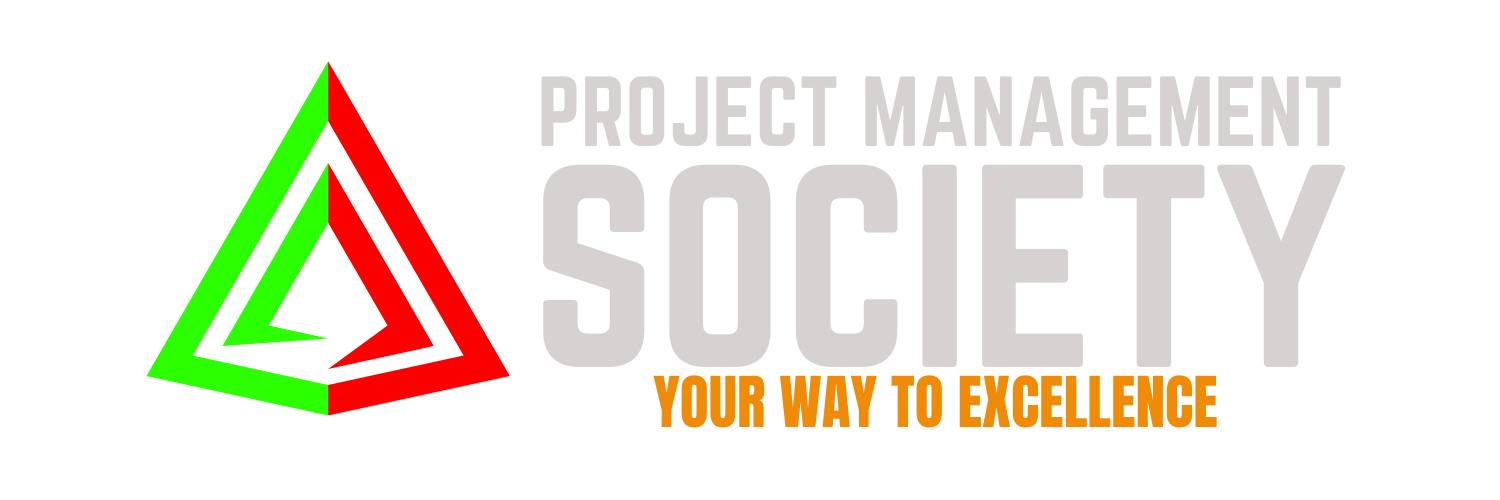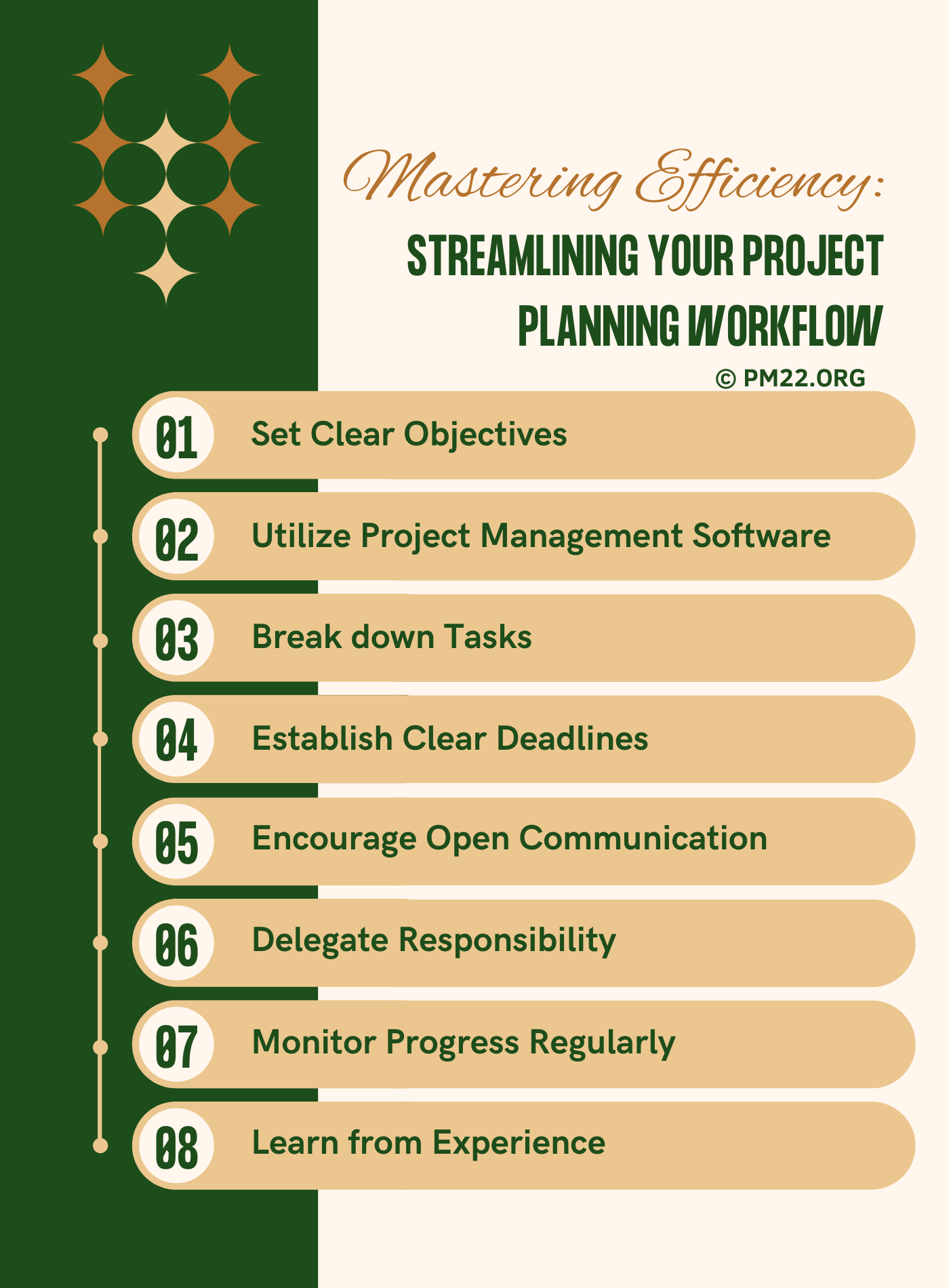 In the realm of project management, efficiency isn’t just a desirable trait—it’s an essential component for success. Whether you’re leading a small team or overseeing a large-scale initiative, mastering your project planning workflow can make the difference between meeting deadlines with ease or constantly scrambling to play catch-up. Streamlining your approach to project planning isn’t rocket science, but it does require intentionality and a willingness to adopt new strategies. Here’s how you can optimize your project planning workflow for maximum efficiency.
In the realm of project management, efficiency isn’t just a desirable trait—it’s an essential component for success. Whether you’re leading a small team or overseeing a large-scale initiative, mastering your project planning workflow can make the difference between meeting deadlines with ease or constantly scrambling to play catch-up. Streamlining your approach to project planning isn’t rocket science, but it does require intentionality and a willingness to adopt new strategies. Here’s how you can optimize your project planning workflow for maximum efficiency.
- Set Clear Objectives: Before diving into the nitty-gritty details of a project, take the time to define clear objectives. What is the purpose of the project? What specific outcomes are you aiming to achieve? By establishing clear objectives from the outset, you provide your team with a roadmap to success, minimizing confusion and ensuring everyone is aligned on the project’s goals.
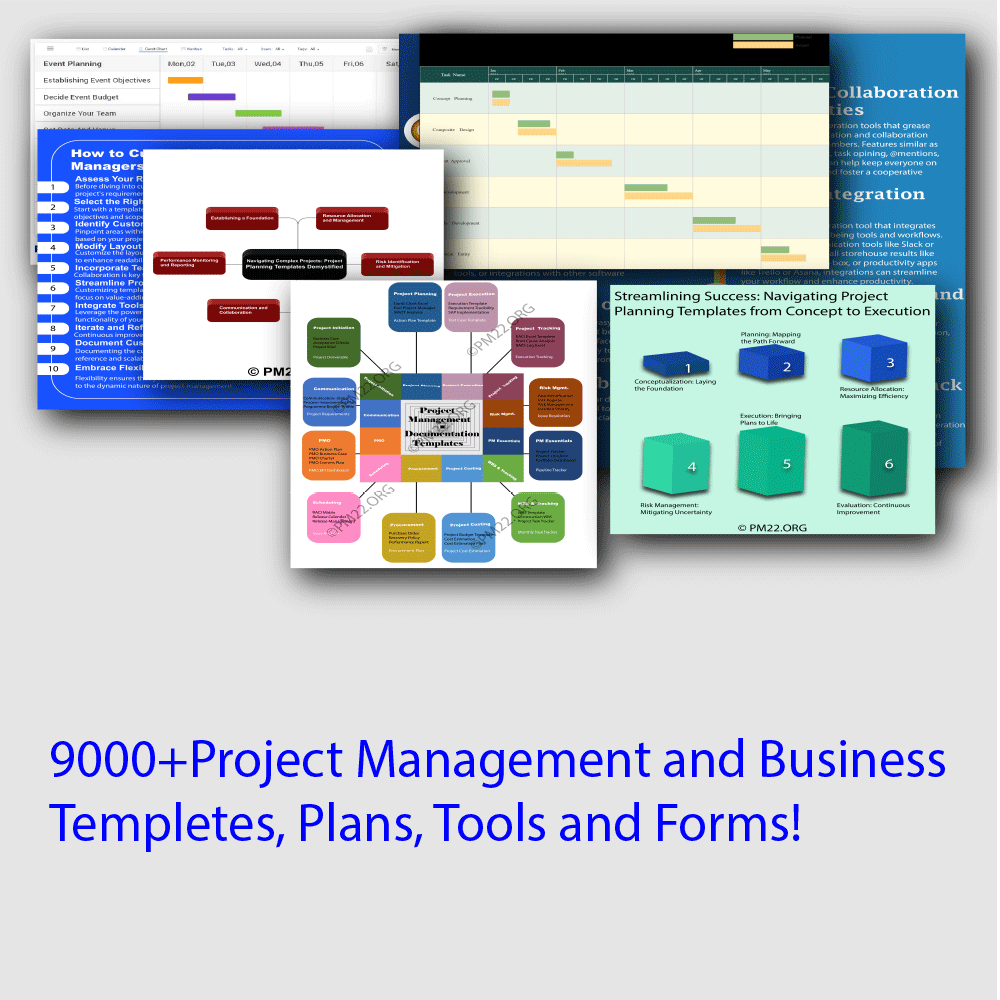
- Utilize Project Management Software: In today’s digital age, there’s no shortage of project management tools designed to streamline the planning process. Platforms like Trello, Asana, and Monday.com offer features such as task assignment, progress tracking, and file sharing—all essential elements for efficient project planning. Find a tool that works for your team’s needs and make full use of its capabilities to keep your project on track.
CLICK HERE TO DOWNLOAD 300+ PROJECT MANAGEMENT TEMPLATES & DOCUMENTS IN EXCEL
- Break down Tasks: One of the most effective ways to streamline your project planning workflow is to break down tasks into smaller, more manageable components. Rather than tackling the project as a whole, divide it into actionable steps, assigning specific tasks to individual team members. This not only makes the project more digestible but also facilitates better time management and resource allocation.
- Establish Clear Deadlines: Deadlines are the cornerstone of effective project planning. Without them, tasks can drag on indefinitely, leading to delays and frustration. Set realistic deadlines for each phase of the project and communicate them clearly to your team. Be sure to build in some buffer time to account for unforeseen challenges or delays but avoid setting deadlines so far in the future that they lose their sense of urgency.
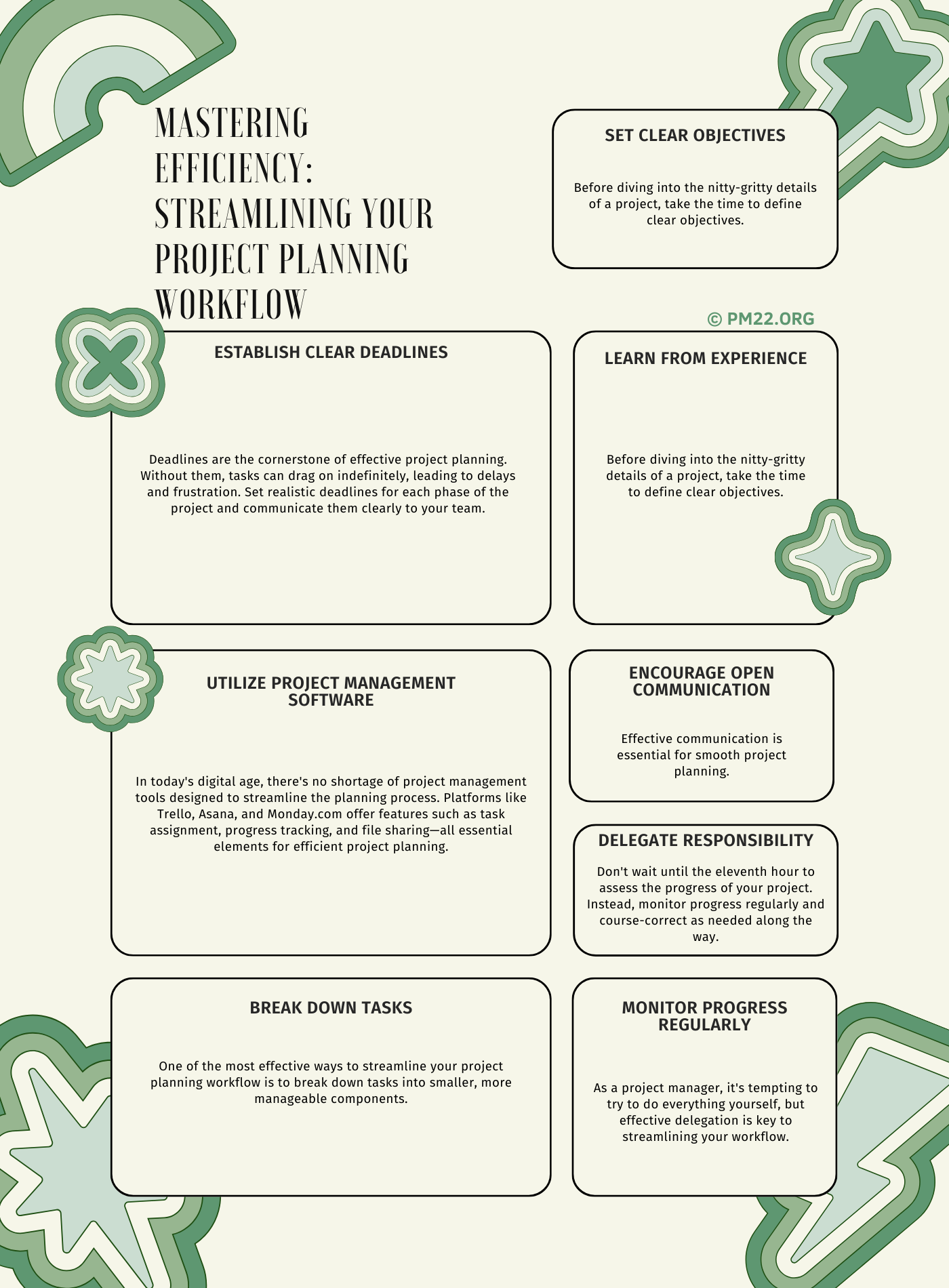
- Encourage Open Communication: Effective communication is essential for smooth project planning. Encourage open communication channels within your team, allowing members to ask questions, share updates, and voice concerns freely. Regular check-ins and status meetings can help keep everyone on the same page and ensure that any issues are addressed promptly.
- Delegate Responsibility: As a project manager, it’s tempting to try to do everything yourself, but effective delegation is key to streamlining your workflow. Identify team members with the skills and expertise needed for specific tasks and delegate responsibility accordingly. Trust your team to deliver results and resist the urge to micromanage every detail.
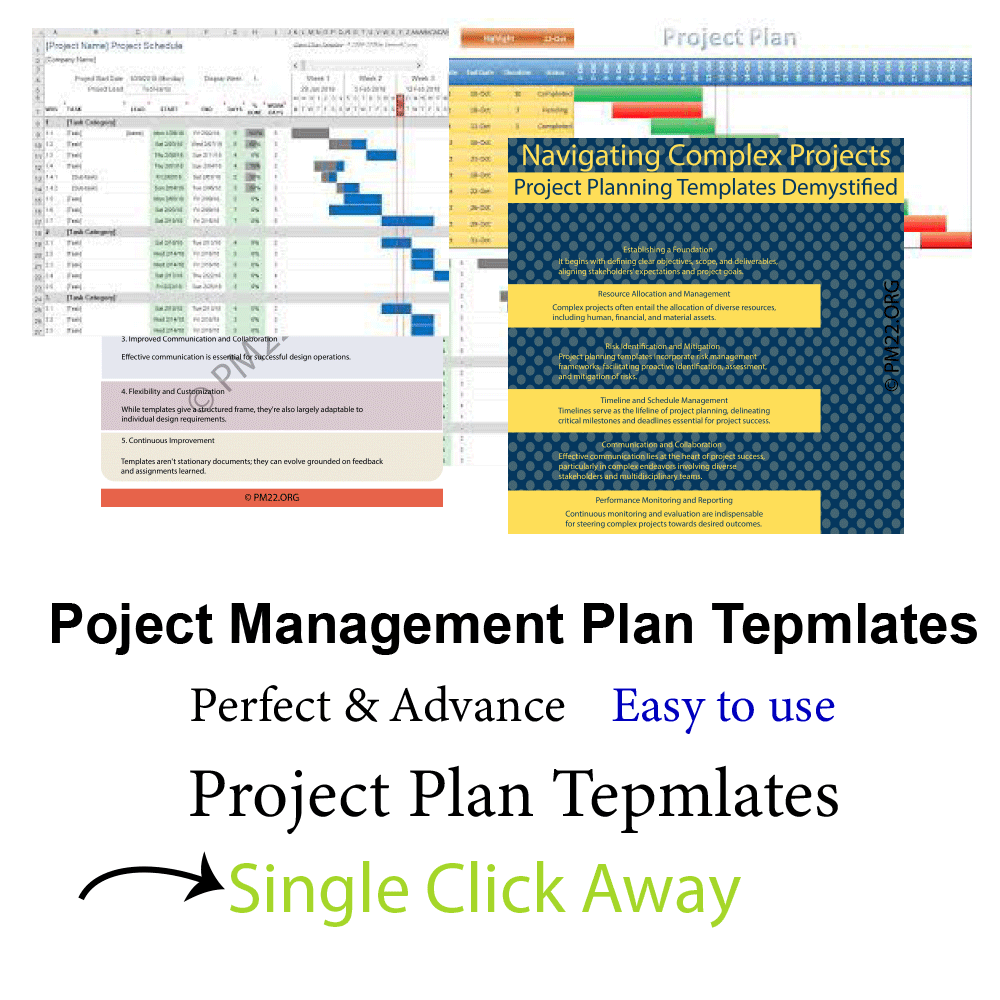
- Monitor Progress Regularly: Don’t wait until the eleventh hour to assess the progress of your project. Instead, monitor progress regularly and course correct as needed along the way. Keep track of key metrics such as task completion rates, budget expenditures, and overall project timeline to identify any potential issues early on and take proactive measures to address them.
CLICK HERE TO DOWNLOAD 300+ PROJECT MANAGEMENT TEMPLATES & DOCUMENTS IN EXCEL
- Learn from Experience: Finally, take the time to reflect on each project once it’s completed. What went well? What could have been done differently? By learning from experience and incorporating feedback into your planning process, you can continuously improve your workflow and become even more efficient in future projects.
In conclusion, streamlining your project planning workflow is essential for maximizing efficiency and achieving success. By setting clear objectives, utilizing the right tools, breaking down tasks, establishing deadlines, fostering open communication, delegating responsibility, monitoring progress regularly, and learning from experience, you can optimize your project planning process and set your team up for success. With a well-oiled workflow in place, you’ll be able to tackle even the most complex projects with confidence and ease.
